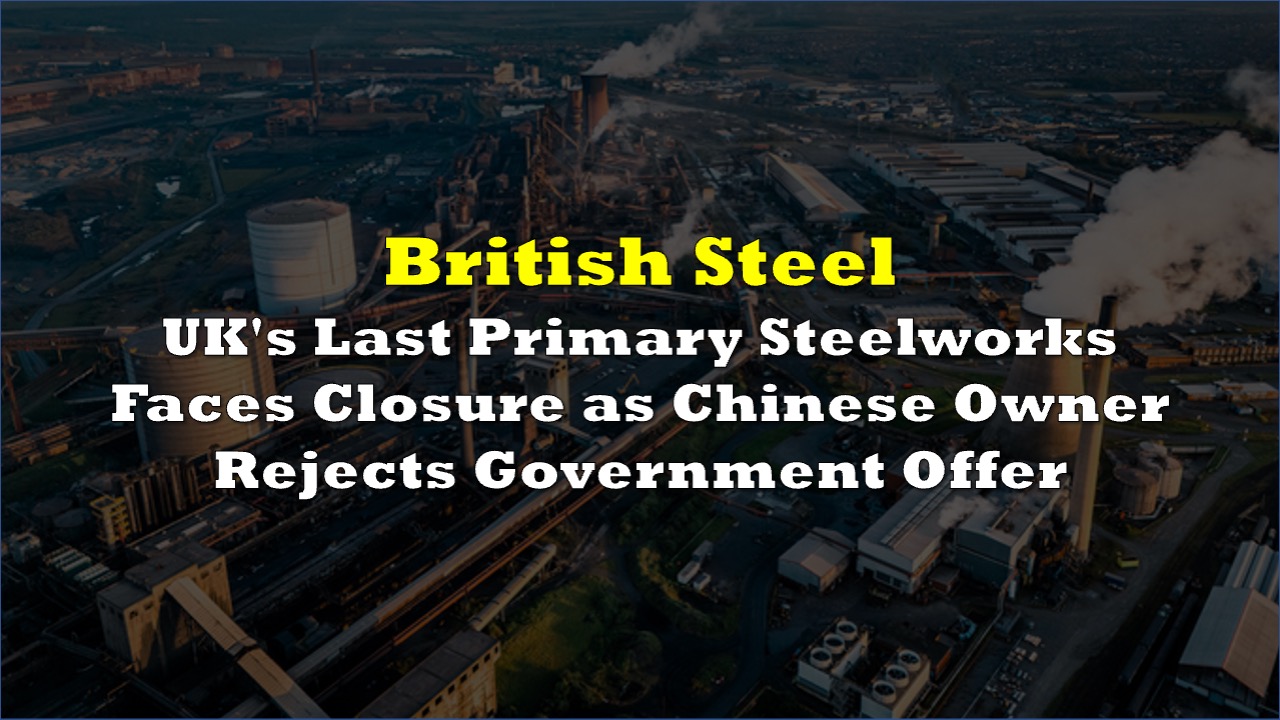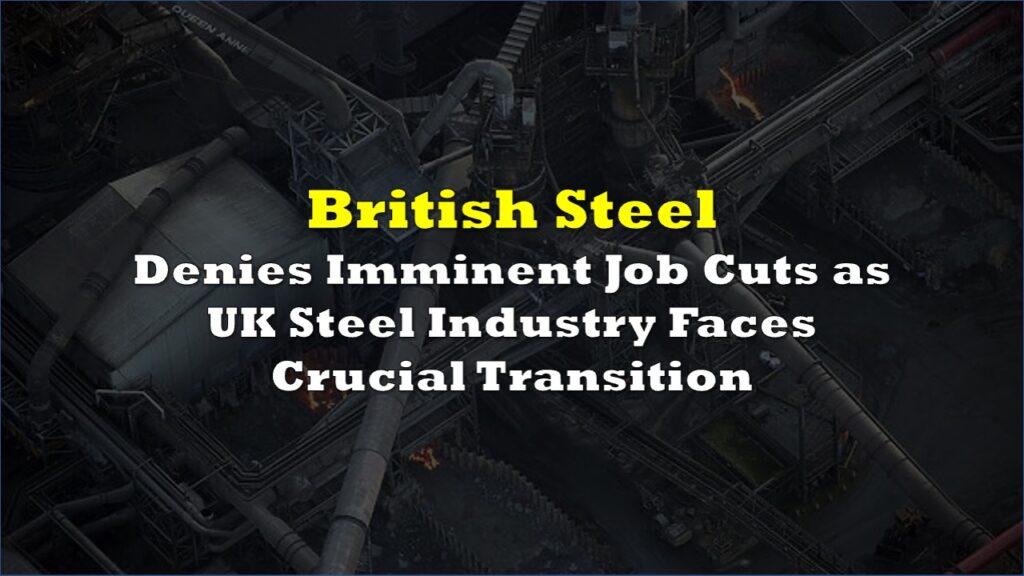British Steel could close its two blast furnaces at Scunthorpe as early as June after its Chinese owner rejected a £500 million government rescue package, threatening Britain’s ability to produce steel from raw materials.
The company, owned by China’s Jingye Group, said the furnaces are “no longer financially sustainable” amid challenging market conditions, tariffs and rising environmental costs, putting up to 2,700 jobs at risk.
Flashback: British Steel Denies Imminent Job Cuts as UK Steel Industry Faces Crucial Transition
“The closure of British Steel’s two furnaces would leave the UK as the only G7 economy without the ability to make steel from scratch,” said Gareth Stace, director general of UK Steel, calling it “an irreparable break in the armour of national security.”
Unions report the company may run out of raw materials needed to keep the blast furnaces running in the coming weeks. “Our biggest concern is raw materials,” said Alasdair McDiarmid, assistant general secretary at Community union, telling the Financial Times the furnaces would “probably close in June by default” without an agreement.
British Steel sought £1 billion in state support toward a £2 billion transition to electric arc furnace technology, which recycles scrap rather than producing new steel. The government countered with a £500 million offer, similar to a deal struck with India’s Tata Steel for its Port Talbot operations.
“This is a £2 billion project we estimate, so it is not a project that the private sector is going to be able to implement without government support,” said Allan Bell, British Steel’s chief commercial officer, testifying to a parliamentary committee.
The consultation outlines three closure options, with the earliest seeing operations cease by June 2025, ending 160 years of steelmaking in Scunthorpe.
The closure would have far-reaching implications for UK infrastructure. Network Rail, which owns Britain’s railway infrastructure, is particularly vulnerable, as 95% of the steel used to build tracks is made at Scunthorpe, although it has stockpiled a year’s supply as a contingency measure.
Following Tata Steel‘s announcement last September to close its two blast furnaces at Port Talbot with the loss of 2,500 jobs, the Scunthorpe closure would complete the erosion of Britain’s primary steelmaking capability.
Energy Minister Sarah Jones acknowledged the strategic importance of domestic steel production, telling a parliamentary committee: “There is a reason why Russia bombed all the blast furnaces in Ukraine pretty much straight away; because countries need steel not just for defence but to build roads and infrastructure.”
The government maintains it made a “generous conditional offer” and has committed £2.5 billion to rebuild the sector. Business Secretary Jonathan Reynolds pledged to continue “working tirelessly to reach an agreement with the company’s owners to secure its future and protect taxpayers’ money.”
Nationalization remains one option under consideration, according to ministerial statements, as negotiations continue.
Information for this story was found via the sources and companies mentioned. The author has no securities or affiliations related to the organizations discussed. Not a recommendation to buy or sell. Always do additional research and consult a professional before purchasing a security. The author holds no licenses.






One Response
It is the green religion with its dogma “climate change” that makes steel production in Europe extremly expensive. I would guess that steel production in Germany and Austria will follow soon.